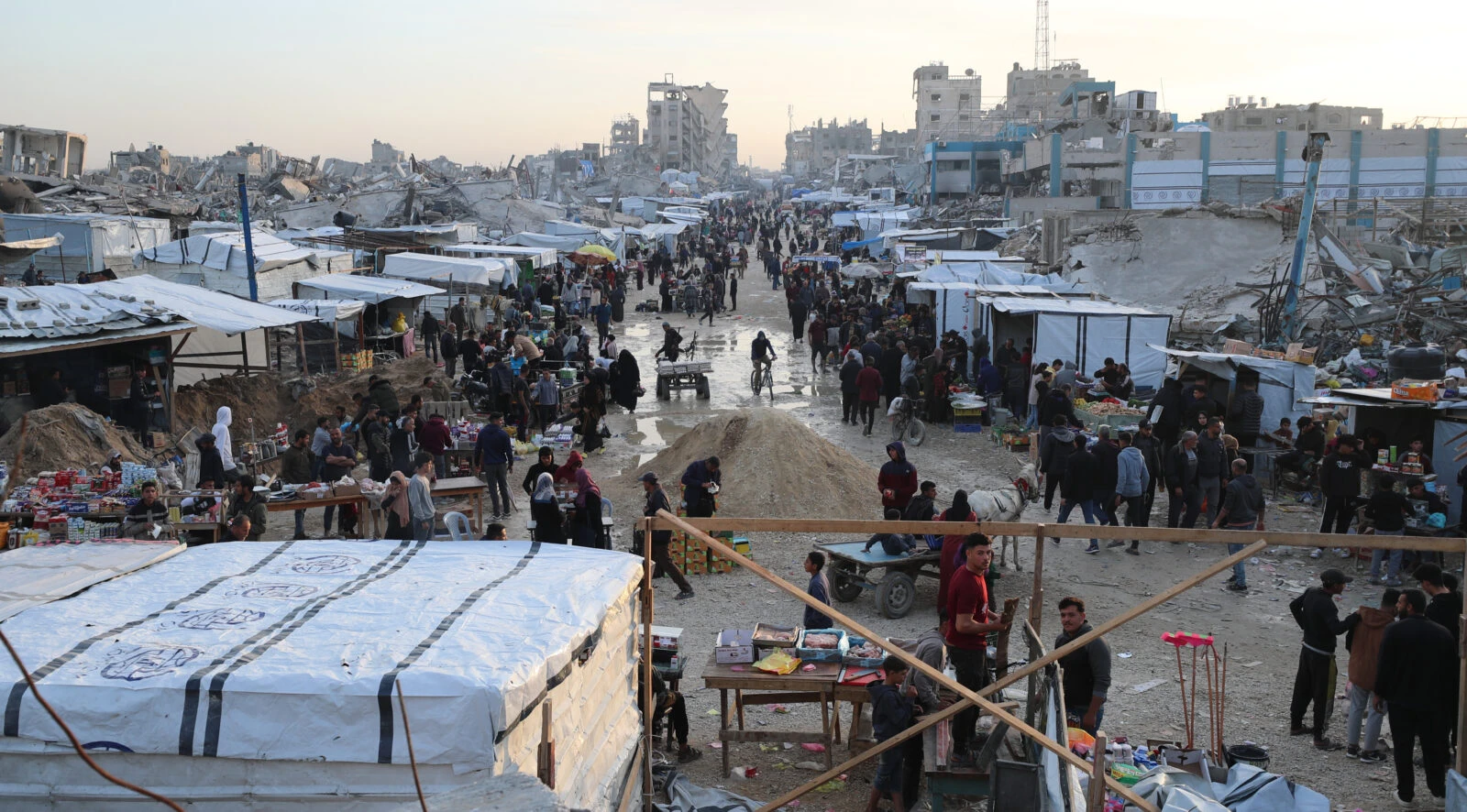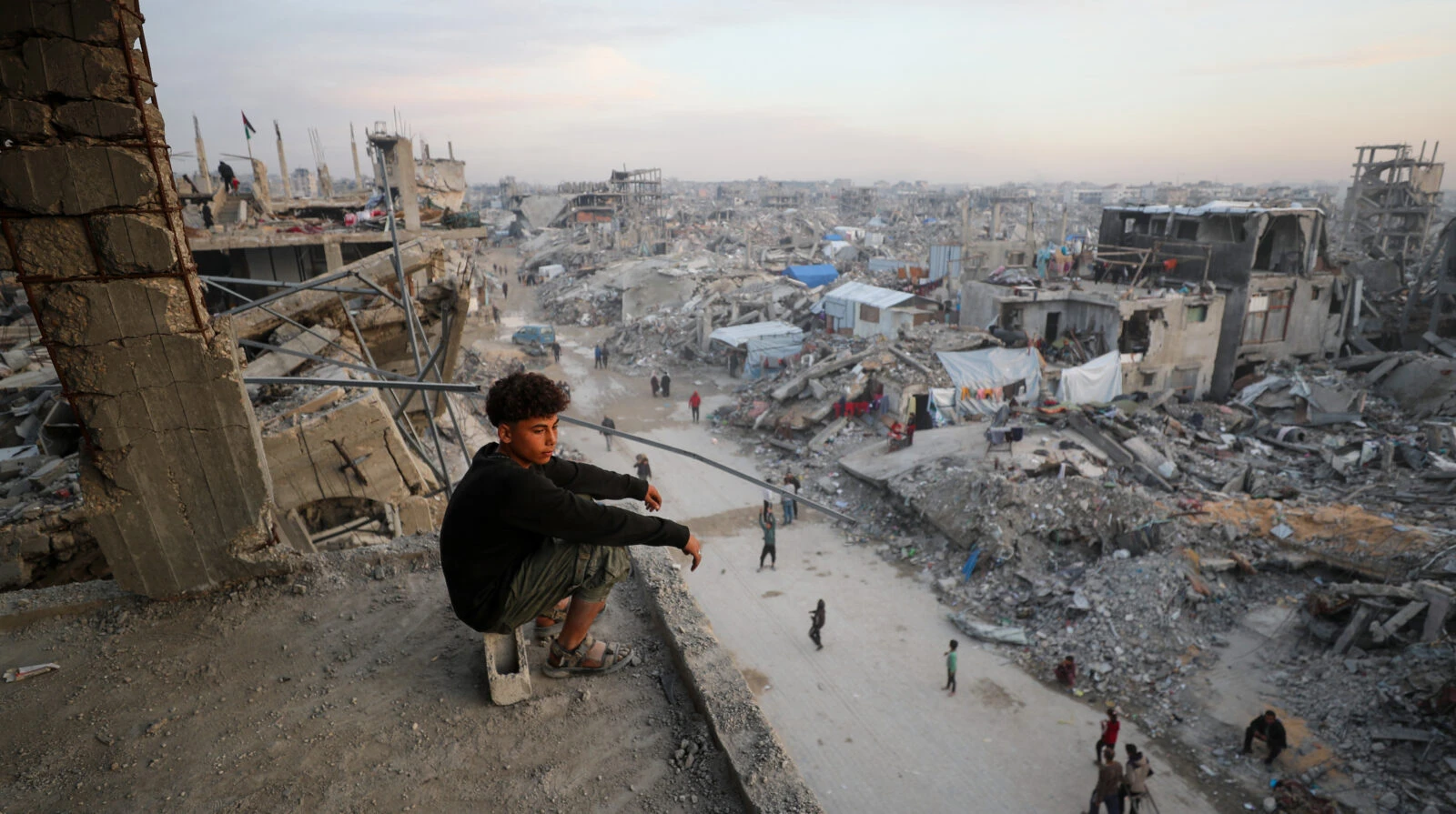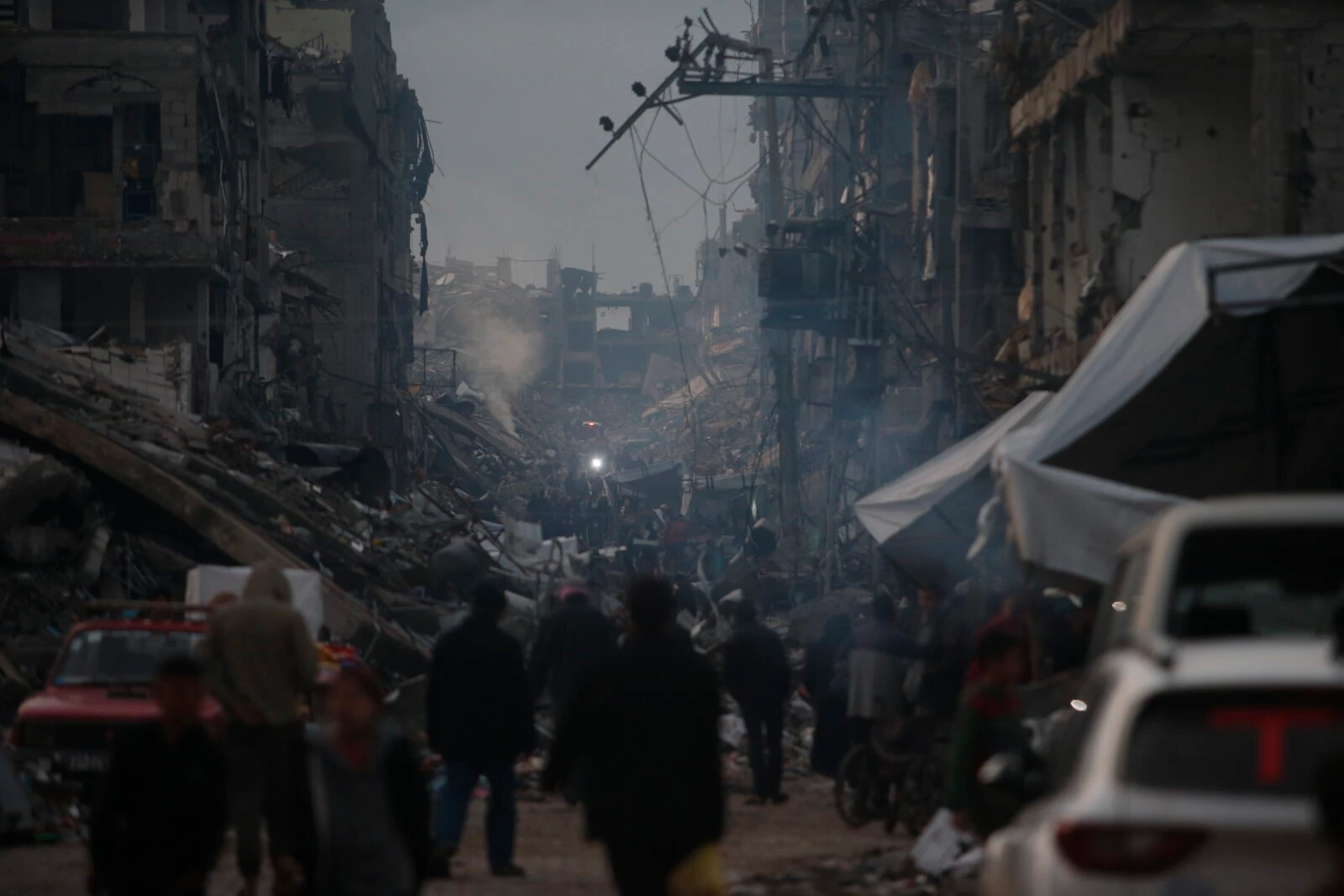Where the Arab League falls short, others don’t regarding Palestine
 A general view the Extraordinary Joint Summit of the Organization of Islamic Cooperation and the Arab League in Riyadh, Saudi Arabia on November 11, 2024. (Phot Turkish Presidency - AA).
A general view the Extraordinary Joint Summit of the Organization of Islamic Cooperation and the Arab League in Riyadh, Saudi Arabia on November 11, 2024. (Phot Turkish Presidency - AA).
As the war in the occupied Palestine continues without an end in sight, Arab leaders have done little beyond issuing weak statements. While non-Arab countries like Türkiye, Spain, Venezuela, Ireland, South Africa, Norway, and several others have taken a strong stance for Palestine, most Arab governments remain silent or hesitant. Instead of pushing for real justice, they focus on protecting their own political and economic interests.
A recent discussion on the besieged Gaza enclave’s future, including an Egyptian-drafted plan, further highlights this failure. The besieged Gaza enclave, currently in a fragile so-called cease-fire that could collapse at any moment, is being treated as a problem to be managed rather than a place where Palestinian rights must be defended. Rather than acting with strength, Arab leaders are avoiding responsibility, leaving Palestinians to suffer while others take action.

Solving the crisis or avoiding real action?
Egypt has proposed a plan to govern post-war Gaza, but instead of ensuring Palestinian self-rule, it mostly aims to keep things calm in the region. The plan suggests forming a temporary governing body of experts without ties to Hamas or the Palestinian Authority (PA). While this might seem reasonable, in reality, it follows Israeli and Western demands rather than addressing what Palestinians actually need.
Instead of standing against Israel’s occupation and attacks, Arab leaders have allowed outside powers to dictate Gaza’s fate. Their refusal to challenge Israel and its Western allies has led to weak policies that contain the crisis rather than resolve it. The Egyptian plan, for example, seeks to remove Hamas but does nothing to secure full Palestinian independence. By excluding the PA, Arab states are also accepting Israel’s claim that the PA is corrupt and supports violence. Rather than disputing this narrative, Arab leaders comply with it, giving Israel even more control over Gaza’s future.
Rebuilding Gaza will cost more than $50 billion, with Arab Gulf states like Saudi Arabia, the UAE, and Qatar expected to contribute. However, these same countries have a history of making promises without real political action. They may offer financial aid, but at the same time, they continue normalizing relations with Israel, forming economic ties with the West, and avoiding steps that could risk their geopolitical alliances. Their selective approach exposes their lack of true commitment as they act as donors, not defenders of Palestinian rights.

Non-Arab countries take a stand
While the Arab world hesitates, several non-Arab nations have taken bold positions in defense of Palestine.
- Türkiye has been one of Israel’s strongest critics, despite maintaining diplomatic ties with Tel Aviv. President Recep Tayyip Erdogan has consistently condemned Israel’s military actions, called for an end to the attacks on Gaza, and backed Palestine with both words and action.
- Spain has been vocal at the European level, advocating for Palestinian statehood and challenging Israel’s violations of international law. While many Arab leaders avoid direct criticism, Spanish officials openly call out Israel’s actions.
- Venezuela has gone even further, completely cutting diplomatic ties with Israel and strongly condemning its policies.
- South Africa, having experienced apartheid firsthand, has taken Israel to the top court in the world, the International Court of Justice (ICJ), accusing it of committing genocide in Gaza enclave of Palestine.
- Ireland has also been one of Europe’s strongest voices for Palestinian rights, calling for an end to the blockade on Gaza and demanding political and economic consequences for Israel’s violations.
- Norway in charge of the world’s largest sovereign wealth fund has divested away from Israeli companies known for being directly linked to the situation in Gaza while the Norwegians at large have taken to the streets to protest.
These nations have taken clear and principled actions. They are obviously steps that wealthy and powerful Arab states have failed to take.
By contrast, Arab leaders remain cautious, fearing backlash from the United States and Israel. Some have signed peace agreements or strengthened economic partnerships with Israel, making it even harder for them to take a strong stance. Even those who have not officially normalized relations hesitate to impose real consequences. Their dependence on the U.S. for security and economic stability limits their willingness to act independently.
The Egyptian plan, despite being presented as a stabilizing effort, follows the same pattern of Arab disengagement. It allows Arab states to appear involved in postwar Gaza without actually taking responsibility. Its focus on temporary governance and external oversight fails to address the main issue: Palestinian sovereignty. Instead of strengthening Palestinian leadership, it weakens it, making it easier for Israel to maintain control over the situation.

Cost, burden of inaction
The consequences of Arab inaction are severe, both for Palestinians and for the wider region. Their failure to take a firm stand emboldens Israel to continue its long-term strategy of displacing Palestinians and increasing its control over occupied lands. Without strong resistance from Arab nations, Israel has no reason to stop its military operations, expand illegal settlements, or maintain the blockade on Gaza.
Furthermore, this passivity damages Arab credibility on the world stage. When non-Arab countries like South Africa and Ireland lead efforts to defend Palestinian rights while Arab states hesitate, it raises serious questions about who truly represents the Arab and Muslim world. Arab populations strongly support Palestine, yet their leaders remain inactive, deepening public frustration and mistrust.
If Arab leaders continue this pattern of appeasement, they will become increasingly irrelevant, not just in the Palestinian struggle but in regional and global politics. Their failure to stand up for Palestine is more than a diplomatic misstep; it is a betrayal of justice and human rights.
Meanwhile, non-Arab nations continue to take decisive steps, challenging Israel’s actions, demanding Palestinian statehood, and even pursuing legal action in international courts. While these countries show leadership, Arab leaders remain stuck in fear, self-interest, and political caution.
Until they change their approach, the occupied State of Palestine will remain abandoned by those who should be its strongest allies, and the besieged Gaza enclave will continue to suffer under the weight of betrayal and neglect.
About the author: Ceren Harputlu is an analyst specializing in international relations. She occasionally contributes as a freelance writer.



